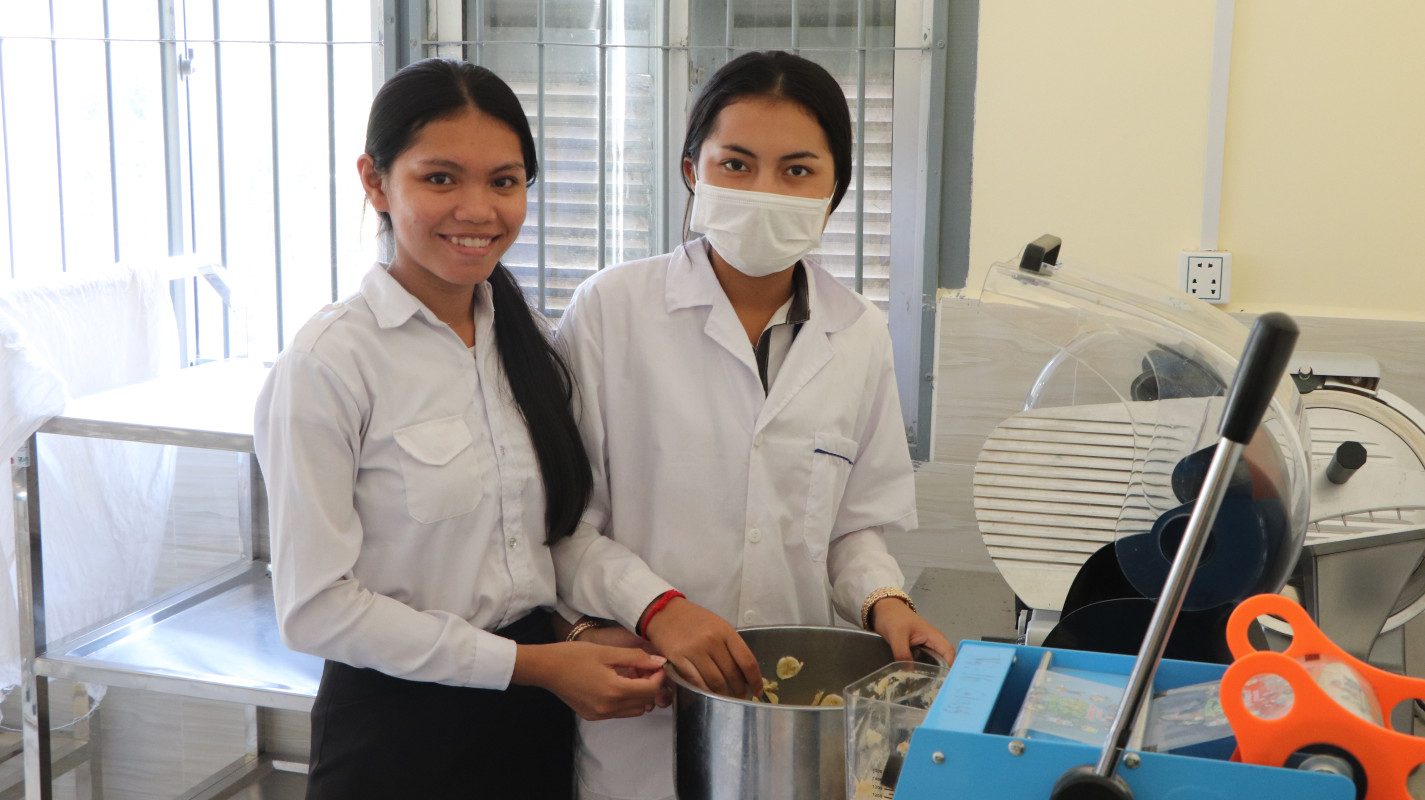Civil Society & Inclusive Governance
People in Need actively promotes quality education and access to employment in Cambodia. We must realise what an important role education plays in the transformation process of developing countries. Not only does it improve prospects of employment, thereby reducing the risk of poverty, hunger and illness, but it also increases the potential of men and women to fight against discrimination. It motivates them to more actively participate in public life and promotion of their interests in society. We also believe that in areas stricken by armed conflict, attending school brings some order and also happiness into the lives of children.
Our educational programmes aim to provide quality primary education for all younger people regardless of origin, religious belief, gender or medical condition.
We also assist with the employment of young people. Through vocational education and training in entrepreneurial and other skills, we assist them in establishing a business or finding a job.
Through our educational programmes, we also encourage young people to actively engage in public life around them and assist them towards the creation of a responsible, democratic society.
Education and skills development must be accessible to all. Under our programme, we are supporting persons with disability to have access to fair and equal employment opportunities. Moreover, we are working closely with employers to educate them on equal opportunities in the workplace for PwDs.
Past Activities
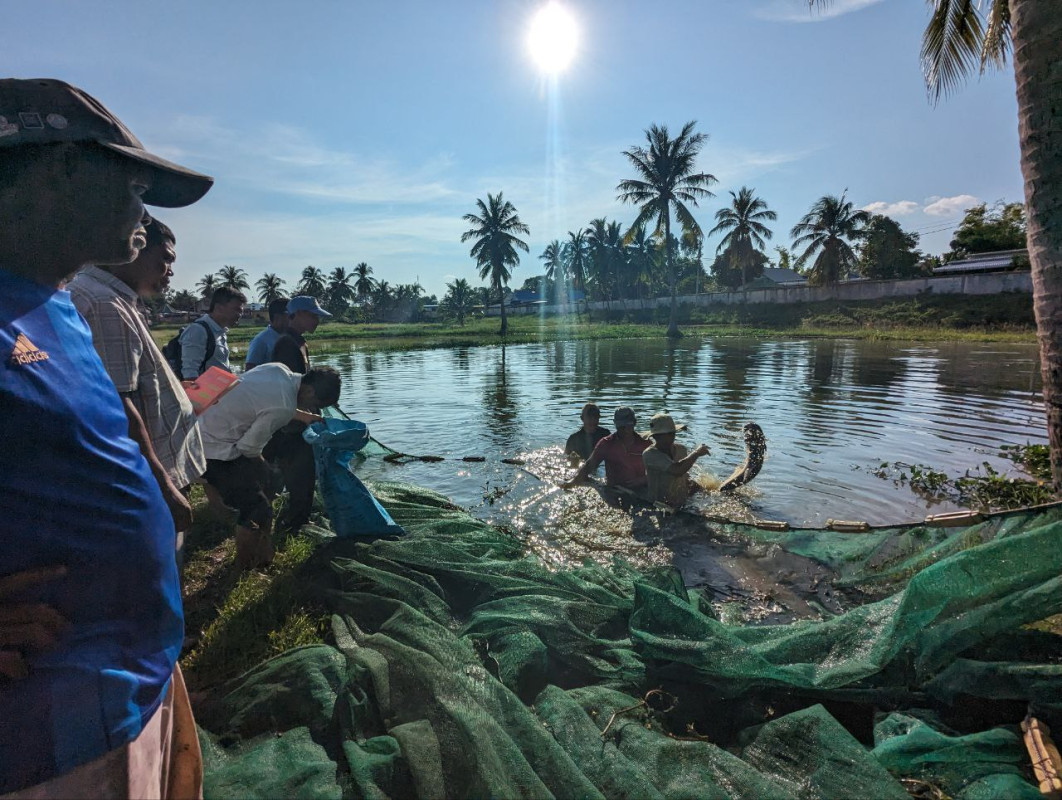
Streamlining Aquaculture in Cambodia's Vocational Education

Dev4SCALE: Development of Poultry Value Chain for Sustainable Community Adaptive Livelihood Enhancement
The project applies a Market Systems Development approach aiming at improving the overall functioning of the poultry value chain in targeted areas. The main goal consists of expanding sustainable and equitable economic opportunities for communities, promoting eco-friendlier solutions, and enhancing their climate resilience.
The project is implemented in Pursat Balang district, Sandan district, Prasat Sambor District, and Santuk district in Kampong Thom.
The design of the project is built on a model which has been tested extensively in three projects funded by the European Union targeting the development of the poultry sub-sector and which generated a deep impact across more than six target provinces.
In order to unleash sustainable changes, the activity tackles issues at different stages of the value chain, ranging from inputs supply to finance and access to markets. The activities seek to strengthen coordination among different value chain actors and establish new market linkages for poultry producers to sell their poultry. Village Animal Health Workers (VAHWs)/Farmer Trainers’ capacities to provide extension services are improved. In order to ensure the sustainability of the model, the project's activities encourage poultry producers to pay a (voluntary) small fee for accessing extension services. As large-scale adoption of positive behaviors in poultry production is often challenging, PIN makes use of its extensive expertise in Social Behavior Change formative research to identify inhibitors and promoters of positive practices and address them effectively. The overall intervention begins with an initial Climate-Sensitive Market Analysis which is then integrated by a participatory value chain analysis, led directly by poultry producers, in order to address producers' lack of access to market information and knowledge about the players in the market system. The latter intervention also contributes to the establishment of new business partnerships with poultry buyers. Access to finance is provided as an option by establishing horizontal linkages between PG and finance providers as well as by supporting interested/capable ACs/Eco-tourism groups in establishing a revolving fund for members to start/expand poultry production. Economic sustainability is ensured by increasing producers’ income and by triggering other value chain actors’ economic incentives to engage with poultry producers. As a result of the implementation, the potential (monthly) income among producer group members would be between 100 and 150 USD on average. The yearly overall income generated, only by the producer groups (approximately 300 members in total), can reach up to 360.000 USD.
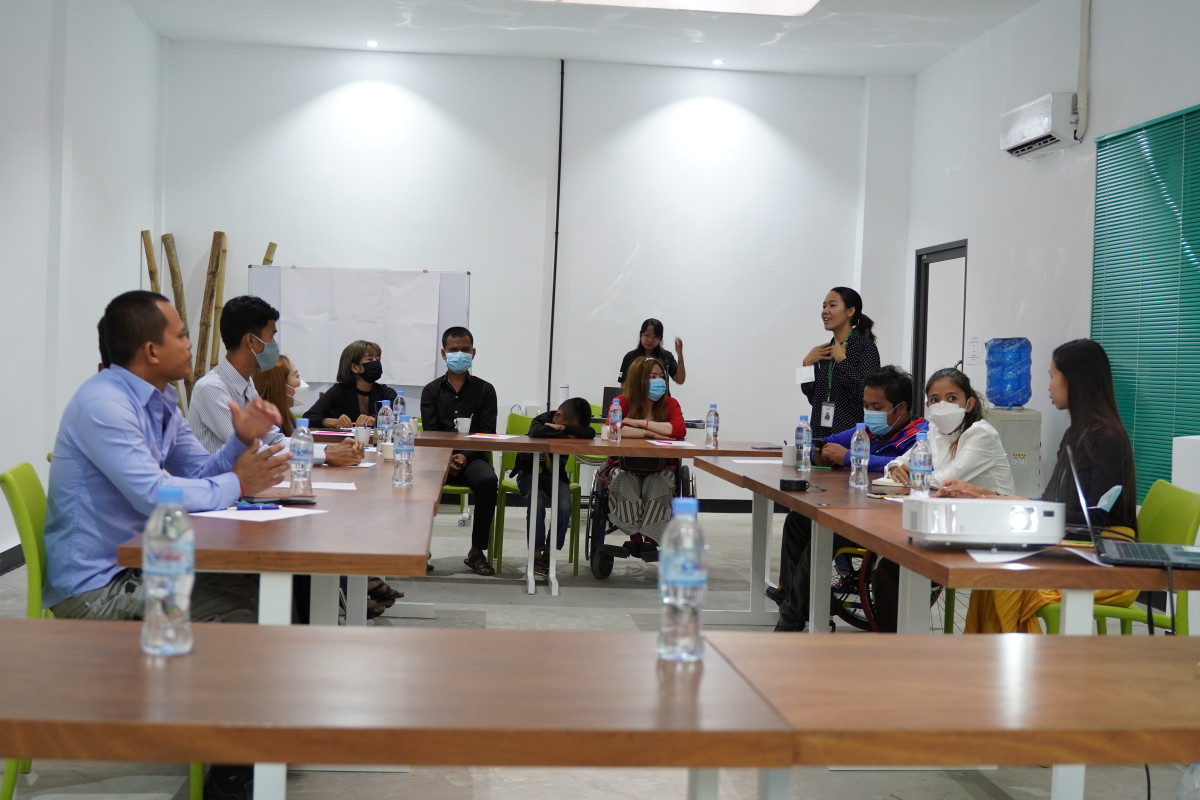
Toward Inclusive Employment for People with Disabilities
This project will promote inclusive education by focusing on providing technical support on the development of guidelines for inclusive education and training of trainers, as well as technical assistance. Adjustment of TVET center's equipment to facilitate access to training for people with disabilities. In addition, the project will also provide training along with technical support on entrepreneurship and provide opportunities to participate in business incubation programs for people with disabilities.
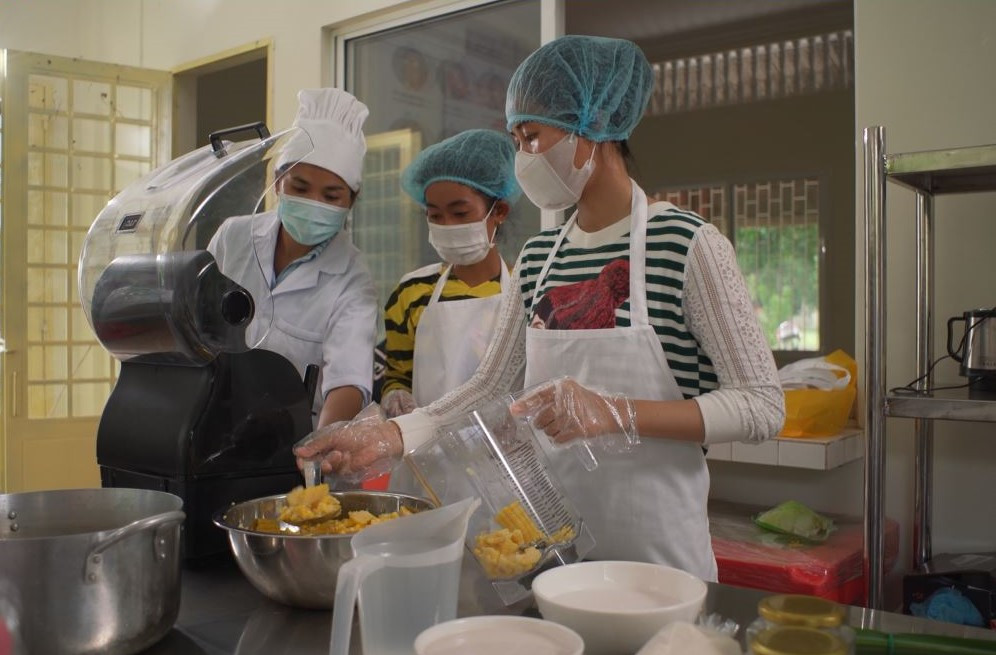
Partnership for Employment and Skills Development (PESD)
The ongoing economic transformation contributed to further decrease in the number of youth employed in agriculture to 47.1% in 2014. While in 1998, the share of youth employed in the agricultural sector was approximately 83.5 %. This trend has an ultimate impact on agriculture-related activities such as agro-processing. One of the factors exacerbating this situation is poor and inadequate curriculums, which are not in line with regional trends of development. Other factors like low capacities and skills of technical teachers or weak linkages between the private sector and technical schools, only contribute to slowing the development of the agro-processing sector.
The PESD project aims to develop a new technical program (agro-food processing) for the technical students at the National Vocation Institute of Battambang (NVIB) to improve economic and employment situation by strengthening the quality of secondary technical and vocational education and training and building partnership between NVIB and private sector. PESD is initially designed to: (i) improve TVET program quality to meet national and international market demands; (ii) increase equitable access to TVET education for enhancing employment generation; (iii) promote Public-Private Partnerships (PPPs) between the institution and private sector, and relevant partner institutions; (iv) improve the governance of TVET system.
The project aims to enable equal access to relevant technical education for youths to seize decent employment opportunities and foster the growth of the agro-processing industry in Cambodia.
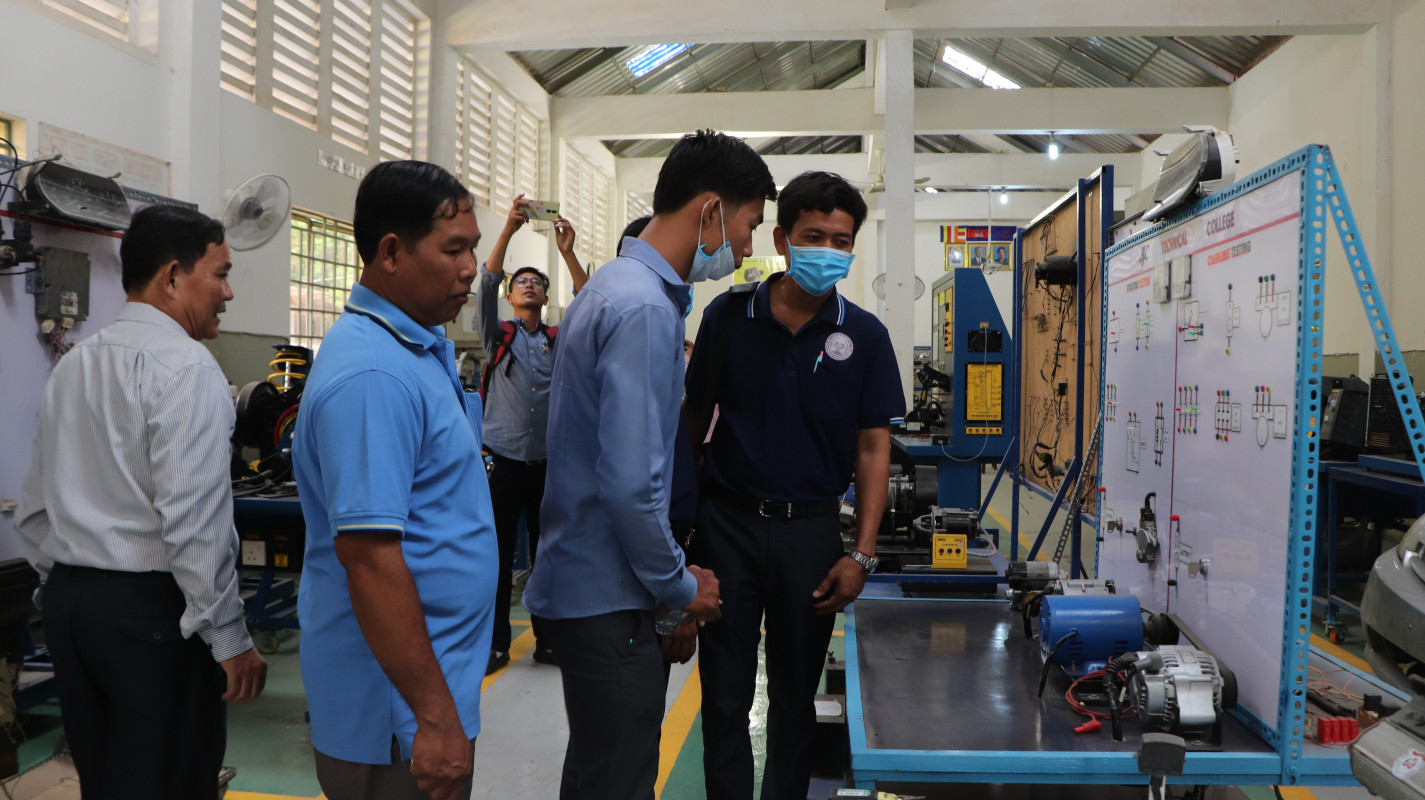
Fostering Transition to Employment for Youth (FTE 4 Youth)
Fostering Transition to Employment for Youth (FTE4Youth) Project is a 3-years project (2019-2021) implemented by PIN at Kampong Chhnang Provincial Training Center (PTC) with the fund from Czech Development Agency. The project aims to enhance the capacities of the Provincial Training Center (PTC) in Kampong Chhnang and the employability of youth by: (i) improving the quality of technical and vocational education at the training center; (ii) ensuring that the courses, equipment, and infrastructure are responsive to the demand of labor market, thus increasing youths’ participation to TVET program; (iii) building Public-Private Partnerships (PPPs) between Provincial Training Center and the private companies while strengthening coordination with other government agencies and other departments; (iv) creating decent job opportunities for youths and fostering entrepreneurship for TVET graduates. The project aims to:
-
Contribute to achieving full and productive employment and decent work for all women and men, including for young people and persons with disabilities, and equal pay for work of equal value. (SDG 8.5)
-
Ensure that youths are able to access relevant skills matching the needs of the private sector, and are aware of decent job opportunities as a result of improved educational and managerial capacities of the Provincial Training Centre in Kampong Chhnang as well as employment-boosting initiatives.
The ultimate goal of the project is to enable youth to transit to decent employment opportunities thanks to the relevant skillset acquired through the Provincial Training Centre in Kampong Chhnang.
FTE 4 Youth uses a systemic approach that aims to address the root causes of underperformance of the labor market system thus ensuring the long-term sustainability of the initiative
